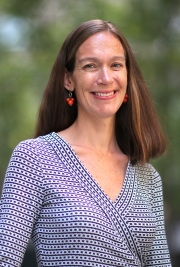A study published in The Lancet Global Health on Nov. 14 shows that workshops designed to provide religious leaders with information about family planning led to a measurable increase in the numbers of people seeking contraception at community public health facilities.
“When women have access to family planning, it leads to better health for the women and better health for their babies,” said co-senior study author Dr. Jennifer Downs, the Ehrenkranz Family/Orli R. Etingin, M.D. Associate Professor in Women's Health and an associate professor of microbiology and immunology in medicine in the division of Infectious Diseases in the Weill Department of Medicine. The findings present a novel strategy for increasing global awareness and use of contraception in regions where faith leaders are trusted messengers in the community.
Religious Leaders Help Increase Community Knowledge
The work was inspired by a similar study Dr. Downs and her colleagues in Tanzania conducted in 2017. In that trial, the researchers worked with religious leaders to promote adoption of male circumcision as an HIV prevention measure. Although the approach was successful, the women in the villages felt left out. “They kept asking us when we were going to talk to them,” said Dr. Downs. When she and her team asked what the women wanted to hear about, their answer was unequivocal: family planning.
Dr. Downs and her colleagues began by exploring why women might hesitate to take advantage of free contraceptives available at health facilities in Tanzania. The team learned that people questioned whether these methods could cause infertility or birth defects. They were also afraid that family planning might go against their faith. “Both women and men would say things like, ‘maybe I should just have the number of babies that God wants to give me,’” said Dr. Downs, who is also a member of the Center for Global Health at Weill Cornell Medicine.
Dr. Jennifer Downs.

Based on their previous study, the researchers realized that local families would be more receptive to information about family planning, and referrals to their local health facilities for contraception, from religious leaders. “They are deeply trusted—much more so than doctors,” said Dr. Downs. “They're the ones that people go to with problems, and they're closely integrated in people's lives.”
Read the full story in our WCM newsroom.

